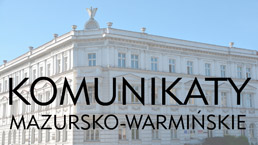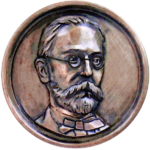Current issue
Online first
Special issues
Archive
About the Journal
Editorial Board
Editorial Council
Reviewers
Editorial guidelines
Publication ethics
Guidelines for reviewing
Remarks on “ghostwriting”
Copyrights and Open Access rule
GDPR Privacy Notice – for the authors of articles sent for publication in the "Komunikaty Mazursko-Warmińskie ("Masuro-Warmian Bulletin")
Contact
Price list
Poles from Greater Poland and Congress Poland in the defense of Lviv
in 1918 and 1919. Examples of solidarity of inhabitants from different
partitions in the struggle for independence
1
Uniwersytet Mikołaja Kopernika w Toruniu
Online publication date: 2021-06-16
Publication date: 2021-06-16
KMW 2021;311(1):52-69
KEYWORDS
TOPICS
ABSTRACT
In the night, between 31 October and 1 November 1918, Ukrainian troops occupied almost the
entire East Galicia and a larger part of Lviv. The fighting between Polish and Ukrainian forces
led to the conquest of the city on 22 November. However, Lviv was still surrounded by the enemy. Former Russian and German partitions organised assistance for the compatriots struggling
in Galicia. In November 1918, the Warsaw Committee of the Defense of Lviv was created in
Warsaw. On the initiative of the Committee and on Józefa Piłsudski’s permission, three units
were formed, which on 12 April were combined into the 19th Infantry Regiment of “Lviv Counter-offensive”. It played an important role in the liberation of eastern Galicia in the spring of
1919. The inhabitants of Greater Poland also strongly sympathised with the battle fought by
Poles in eastern Galicia. In February 1919, the commander of the Greater Poland Army, Gen.
Józef Dowbor-Muśnicki announced a voluntary enrollment to the unit that was setting out for
Lviv. 204 soldiers enrolled in the unit that was commanded by Second Lieutenant Jan Ciaciuch
and Second Lieutenant Maksymilian Soldenhoff. The company was well armed, and was later
strengthened by additional 79 soldiers. Sometime later, the so-called Greater Poland Group
commanded by Col. Daniel Konarzewski arrived in Lviv in the force of 4 thousand soldiers,
armed with heavy artillery and supported by air force. Both units were combative and efficient.
Women also participated in the battle of Lviv as part of the Voluntary Women’s League. According to multiple sources, approximately 400 women took part in the battle of Lviv, many of
whom came from the area of the Russian partition
REFERENCES (15)
1.
Batowski Henryk, Rozpad Austro-Węgier 1914–1918. Sprawy narodowościowe i działania dyplomatyczne, Kraków 1982.
2.
Dziedzic Małgorzata, Dziedzic Stanisław, Arcybiskup Józef Bilczewski, Kraków 2012.
3.
Hujda Władysław, Zarys historji wojennej 19-go Pułku Piechoty „Odsieczy Lwowa”, Warszawa 1928,.
5.
Kelles-Krauz Janina, Mościcka Michalina, Polski Słownik Biograficzny, t. 22/1, z. 92, 1977.
6.
Klimecki Michał, Legiony Polskie na Wołyniu 1915–1916, „Niepodległość i Pamięć” 2008, nr 27.
7.
Klimecki Michał, Lwów: w obronie miasta i południowo-wschodniej granicy 1918–1920 i 1939 r., „Niepodległość i Pamięć”, 2006, nr 24.
10.
Kruszyński Bartosz, Poznańczycy w wojnie polsko-bolszewickiej 1919–1921, Poznań 2010.
11.
Marcinkiewicz-Gołaś Anna, Służba i działalność frontowa warszawskiego oddziału Ochotniczej Legii Kobiet w 1920 r., „Niepodległość i Pamięć” 2008, nr 15/2(28).
14.
Zarys Historji wojennej O.L.K. (Ochotnicza Legja Kobiet), oprac. Kiedrzyńska Wanda, Warszawa 1931.
We process personal data collected when visiting the website. The function of obtaining information about users and their behavior is carried out by voluntarily entered information in forms and saving cookies in end devices. Data, including cookies, are used to provide services, improve the user experience and to analyze the traffic in accordance with the Privacy policy. Data are also collected and processed by Google Analytics tool (more).
You can change cookies settings in your browser. Restricted use of cookies in the browser configuration may affect some functionalities of the website.
You can change cookies settings in your browser. Restricted use of cookies in the browser configuration may affect some functionalities of the website.




